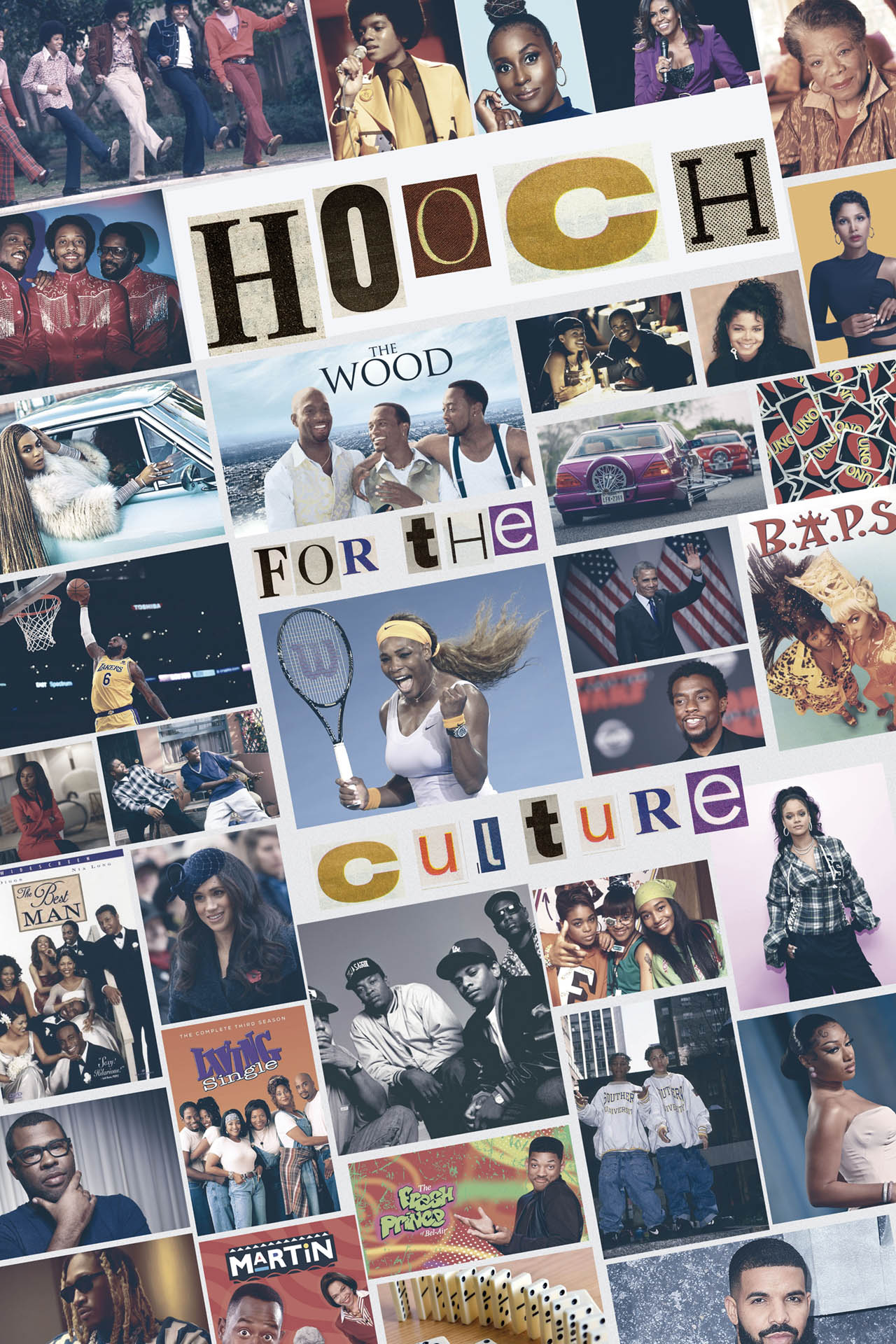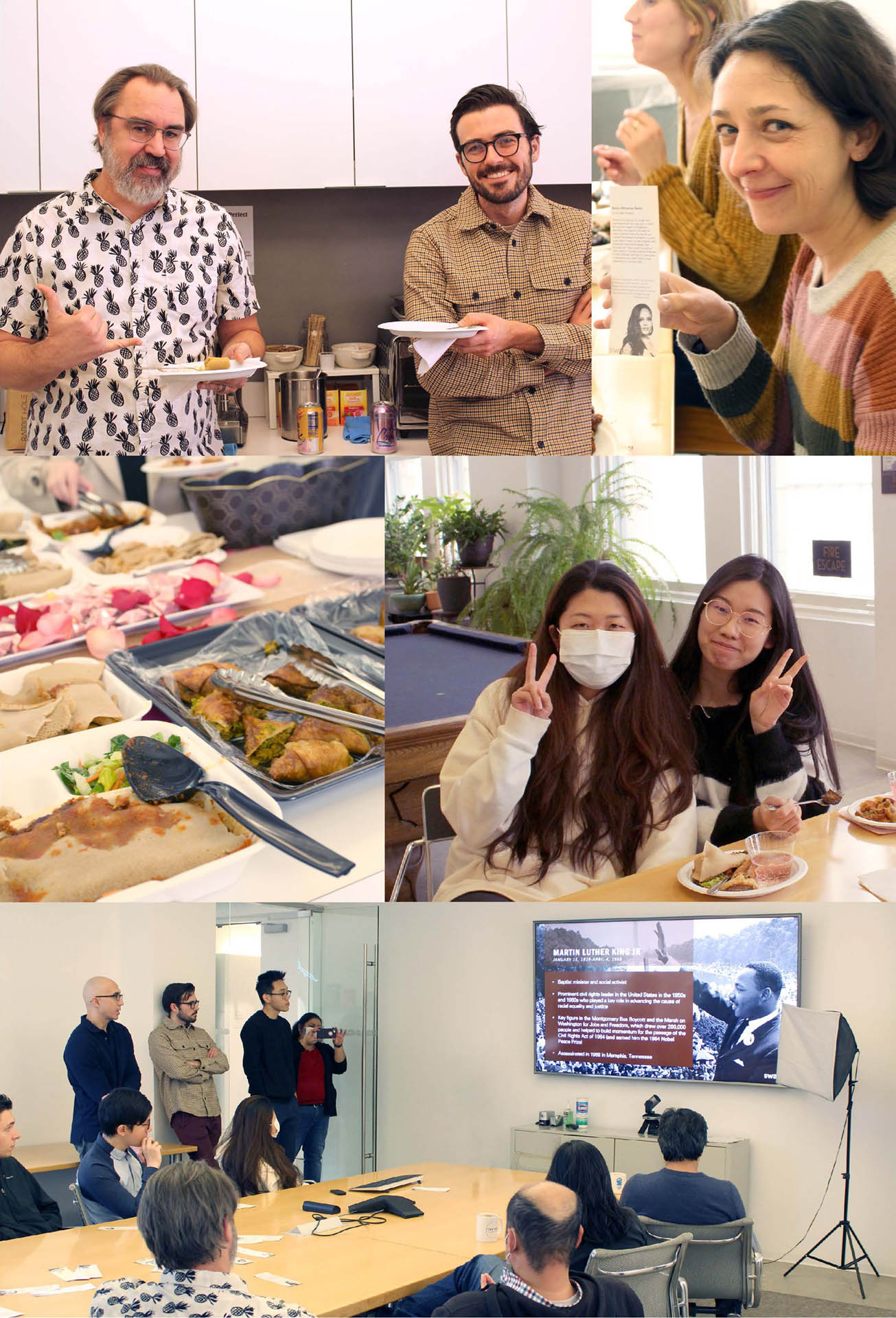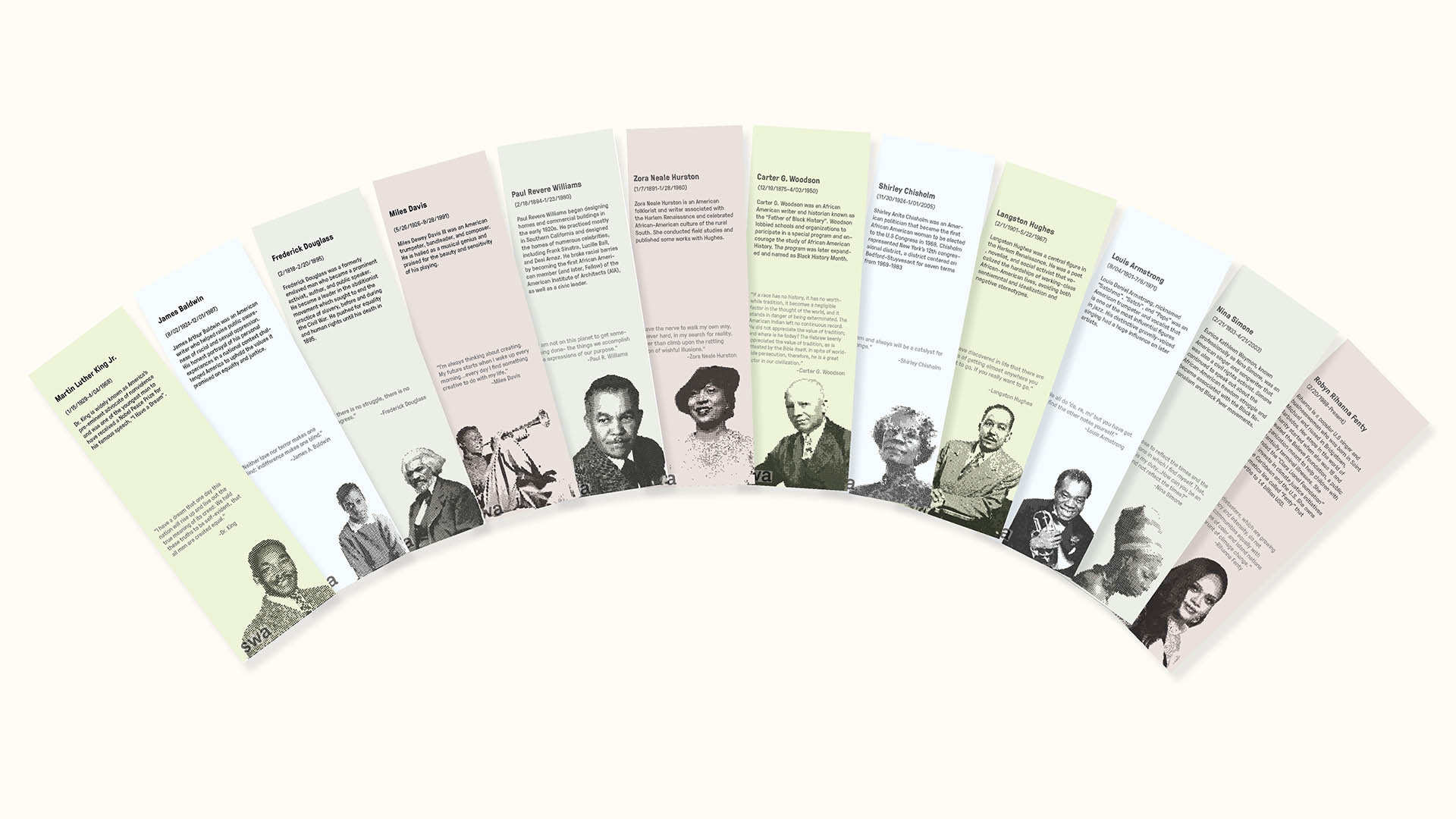Celebrating Black History Month 2023
Ranging in formality from office to office, SWA’s gatherings for Black History Month offered not only educational opportunities in the form of presentations and videos… but also delicious food, “old-school” R&B, soul, and pop music, and favorite relevant book or author recommendations.
Continue reading to hear what some of our staff had to share about what Black History Month means to them individually, in their communities, and in their profession as landscape architects and planners.
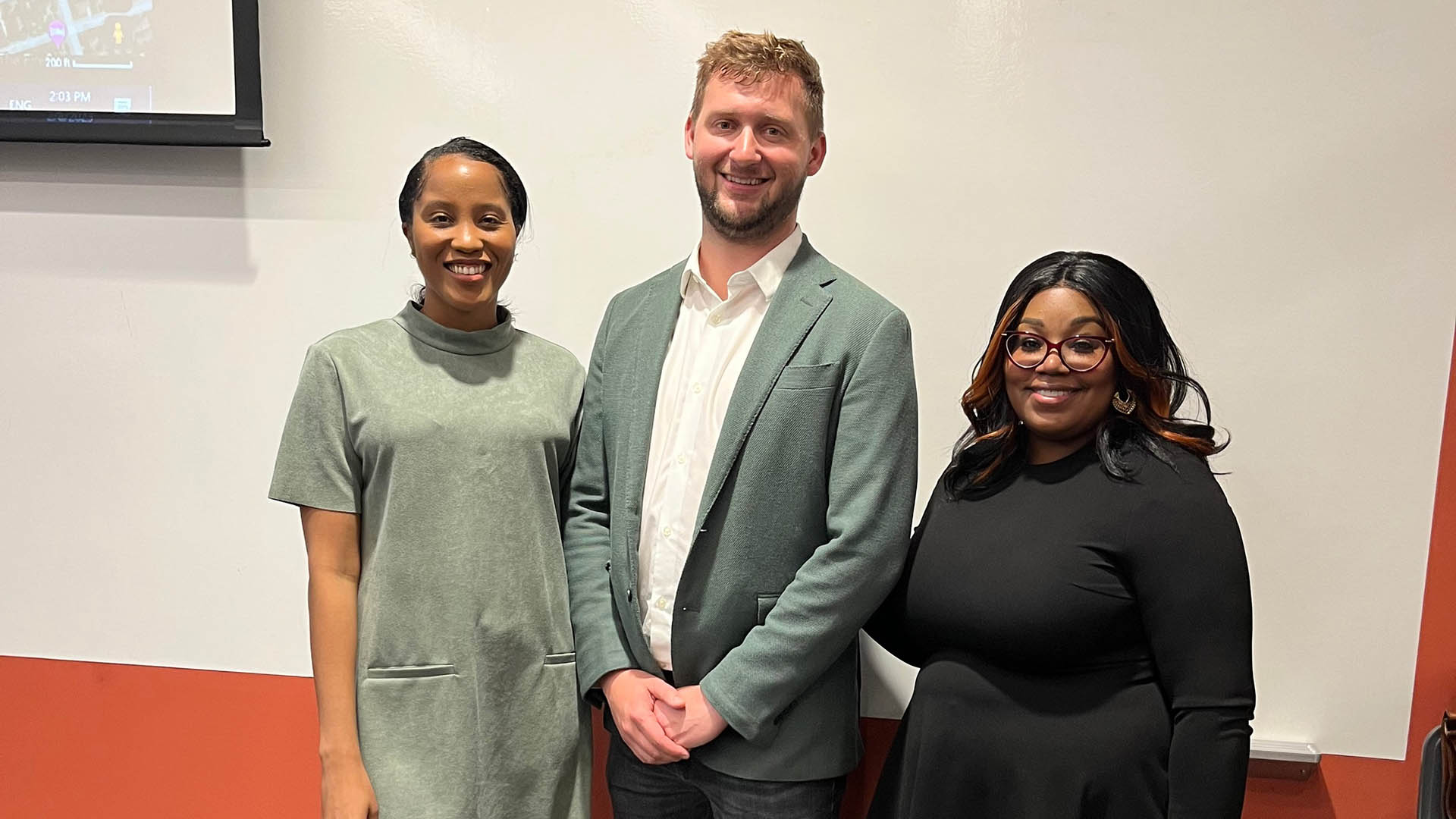

Liz Batchelder
Marketing + Communications, Firmwide
The focus of Black History Month is on celebrating the accomplishments of Black individuals in the face of adversity, their cultural and political contributions, and the social justice movements they have led – and rightly so! But I think it’s also important to note that landscape architects and planners can play key roles in devising and implementing sustainable solutions to correct the longstanding inequities in infrastructure, housing, and access to green space that are the unfortunate legacy of racist policies, both public and private. By understanding the origins of these policies and listening to the people they have impacted over time, we can advocate for more equitable cities that boost quality-of-life overall.
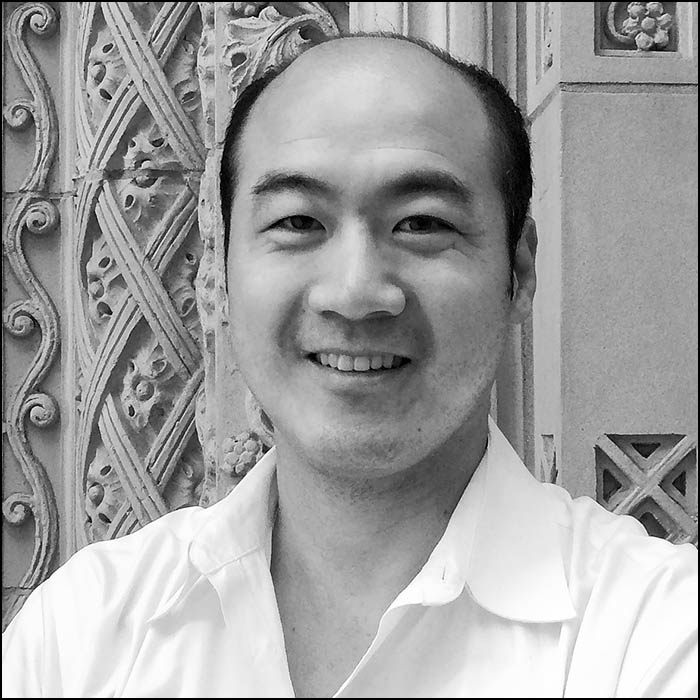
Roman Chiu
Landscape Designer, Los Angeles
Black History Month is a time for honoring and celebrating the Black community. For landscape architects and planners, it’s also a key time to consider the impacts of our work beyond a specific project site. We’re often involved in creating spaces and connections for community, as well as bringing civic leaders, colleagues, and clients into the conversation about why these spaces and connections are important.

Heidi Engelbrechten
Office Manager, Sausalito
Although I’m not a designer, it’s easy to see how places that support their populations in terms of accessibility, sturdiness, and sustainability tie into the history of Black Americans. This month, for example, I learned that after World War II, Black soldiers were excluded from the education and housing support offered their white counterparts. Here in Sausalito, Marin City has made a big impression on me because of its history as a community for Black shipbuilders who had emigrated from the South – and our office building is near the shipyard where a lot of the workers came each day. I’m looking forward to learning more, not just every February, but every day.
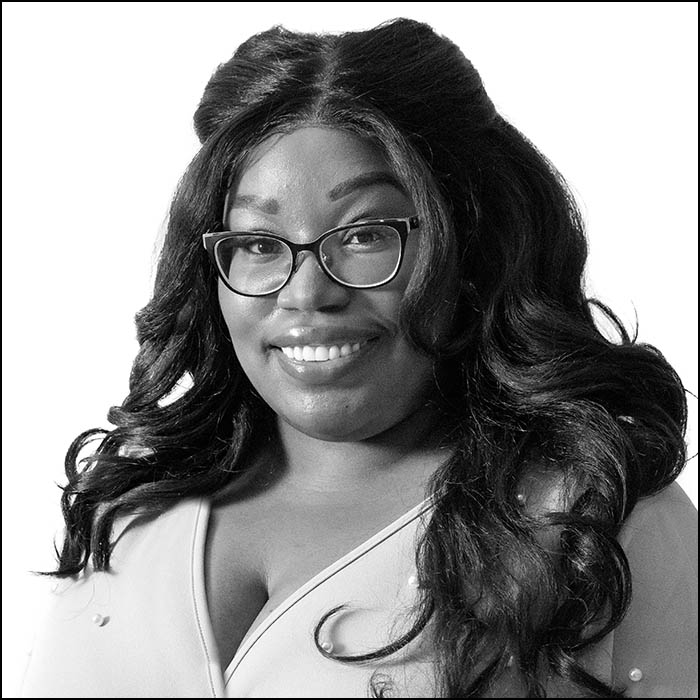
Yun’Tia Murray
Landscape Designer, Houston
To me, Black History is the celebration of my existence, the acknowledgement of past trailblazers, and education about the current leaders and game changers who continue to strive for the betterment of Black people. As a graduate of Prairie View A&M University, a prominent HBCU, I am proud to have been a part of an institution that is an active part of Black history and lives through each passing generation. It’s also gratifying to see different Black organizations in Houston host galas and recognition awards showcasing local Black talent who are making changes in their communities. In the landscape architecture and planning profession, the best way I can ensure the advancement of civil rights is by being present in underserved communities, speaking up to ensure my perspective is heard when working on projects, and giving back with time, design implementation, and listening to the community’s needs.
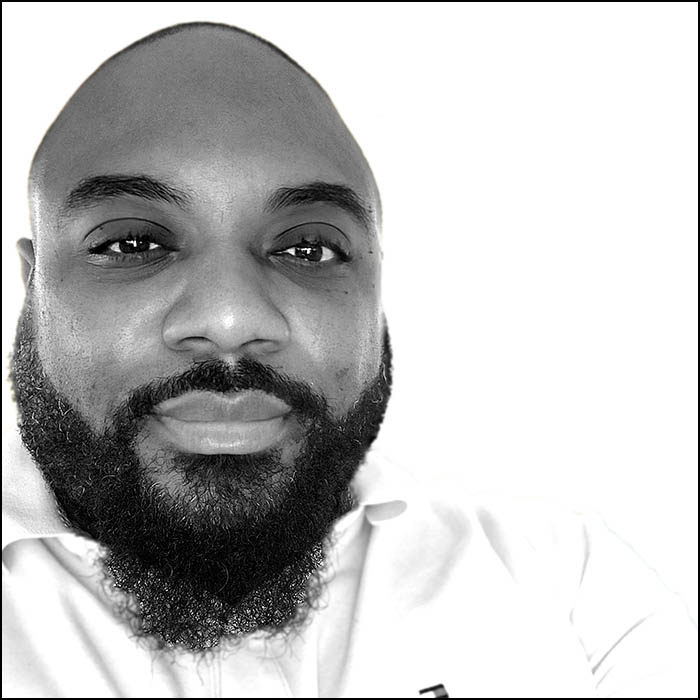
Christopher Stevens
IT, Houston
To me, Black History Month is a time when there is focus put on the history of my ancestors – so much of that history is not taught in schools, even though it’s a key part of the story of the United States. Our, blood, sweat, and tears are woven into the fabric of this country. I went to Southern University, an HBCU in Baton Rouge, Louisiana. Just walking those halls and having the opportunity to learn there made me appreciate what those who came before me had to go through just to get an education.

Theo Vuduris
Landscape Designer, Los Angeles
As historian Carter G. Woodson put it: “…every man has two educators: that which is given to him, and the other that which he gives himself. Of the two kinds the latter is by far the more desirable. Indeed, all that is most worthy in man he must work out and conquer for himself.” To me, Woodson is suggesting that we have to go beyond passively learning about Black history. Being white and growing up outside the U.S., as a child I didn’t learn much, other than the mentions of slavery in a whitewashed version of world history. Black History Month has not only helped me learn more about Black contributions and achievements, it has underscored the importance of identity and educating one’s self about what’s happening in the world today – such as brutality against black people at the hands of law enforcement.
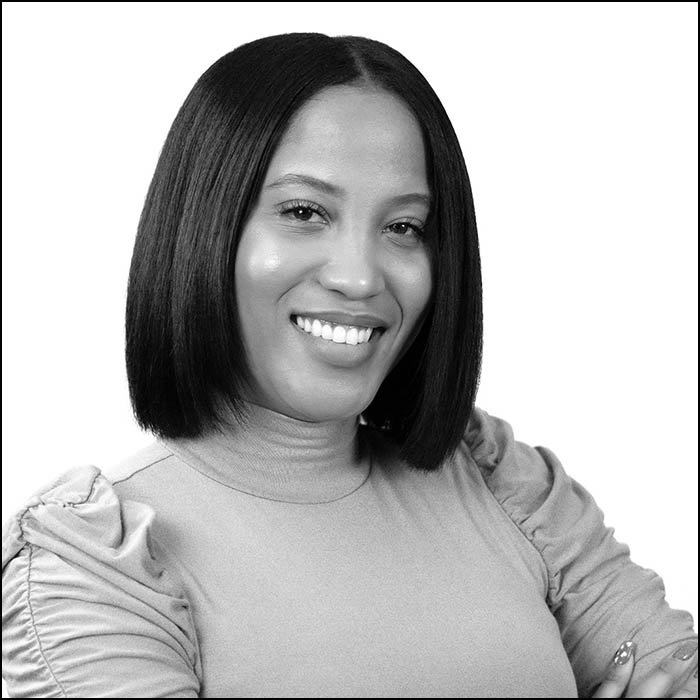
Rochell Vaughns
Marketing Manager, Houston
The fact that I attended Southern University & A&M College, one of the nation’s top HBCUs, has left an impact on me in relation to Black History Month. I was fortunate to dance on the world’s best team, join the world’s best sorority, and meet some of my best friends to this day. I received an education in an environment where I was not considered a minority, and where everyone shared the same goal. Now, in my current community in Houston, I see the month celebrated through parades, local festivals, reflection with family members, and the use of social media to draw attention to our culture. I feel that by spreading awareness of the industry within the Black community and education system, landscape architecture and planning can promote the expansion of civil rights by enabling us to collaborate with more diverse firms in our projects and opening our employment to a more diverse pool.

Chad Whiting
Landscape Designer, Los Angeles
From music to literature, and even in religion, I have been inspired by Black History in many ways. I grew up listening to a lot of jazz, and learned how traditional African music worked its way across seas, through the slave trade, and upwards on various branches of beats and rhythms to become one of the most successful forms of music we have today. To me, Black History Month means celebrating, supporting, healing, discovery, inclusion, and understanding. By educating ourselves, we begin to understand the interconnectivity of our personal lives with those of others, the strength to be found in a diverse society as a whole, and the need to keep history from being lost. In the words of Carter G. Woodson, “If a race has no history, if it has no worthwhile tradition, it becomes a negligible factor in the thought of the world, and it stands in danger of being exterminated.” For those reasons, Zora Neale Hurston remains one of my favorite Black authors. I’m so impressed by her efforts to preserve history by traveling through the South recording historical folklore, language, and lifestyle that we can all study and enjoy to this day.
